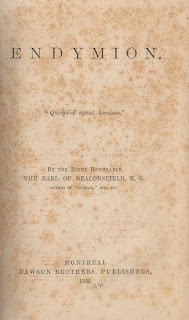Poetry for this Thanksgiving Day by J.K. Foran, KC, Lit D, LL D., from the posthumously published collection A Garland: Lectures and Poems (Montreal: Gazette, [1931]).
THANKSGIVING
For the sound of waters rushingIn bubbling beads of light;For the fleets of snow-white liliesFirm anchored out of sight;For the reeds among the eddies,The crystals on the clod;For the flowing of the rivers,I thank Thee, O my God!For the rosebud’s break of beauty,Along the toiler’s way;For the violet’s eye that opensTo bless the new born day;For the bare twigs that in summerBloom like the prophet’s rod;For the blossomings of flowers,I thank Thee, O my God!For the lifting up of mountainsIn brightness and in dread;For the peaks where snow and sunshineAlone have dared to tread;For the dark and silent gorgesWhence mighty cedars nod;For the majesty of mountains,I thank Thee, O my God!
For the splendor of the sunsets,Vast mirrored on the sea;For the gold-fringed clouds that curtainHeaven’s inner majesty;
For the molten bars of twilight,Where thought leans glad, yet awed;For the glory of the sunlight,I thank Thee, O my God!For the earth and all its beauty,The sky and all its light;For the dim and soothing shadowsThat rest the dazzling sight;For unfading fields and prairies,Where sense in vain has trod;For the world’s exhaustless beauty,I thank Thee, O my God!
For an eye of inward seeing,A soul to know and love;For these common aspirationsThat our high heirship prove;For the hearts that bless each otherBeneath Thy smile, Thy rod;For the amaranth saved from Eden,I thank Thee, O my God!For the hidden scroll, o’erwrittenWith one dear name adored;For the heavenly in the human,The Spirit in the Word;For the tokens of Thy presenceWithin, above, abroad;For Thine own great gift of being,I thank Thee, O my God.
Sadly, I don't own a copy of A Garland. Happily, it can be read online at Bibliothèque et Archives nationales du Québec through this link. Their copy was a gift to the Bibliothèque de la ville de Montréal from Dusty Bookcase favourite Ethel Ursula Foran, Dr Foran's daughter.
Related posts:




























